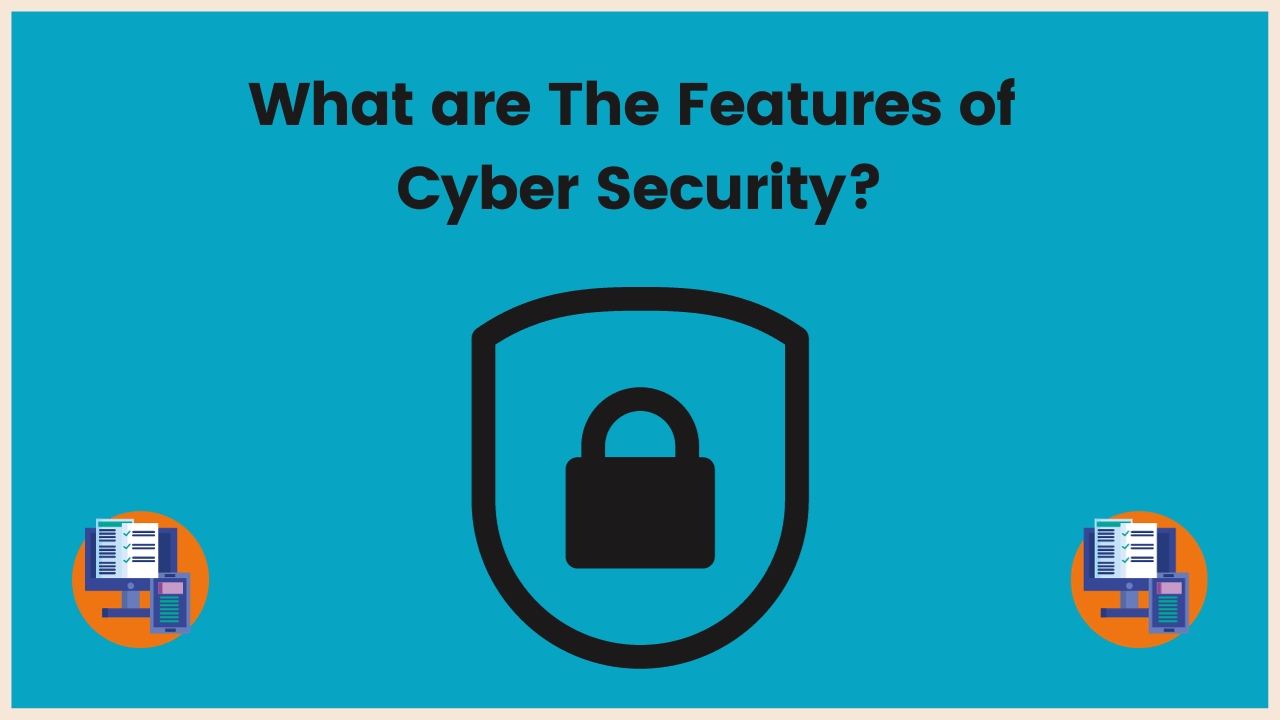In this blog, we will see the Imperative of Cybersecurity and what are the features of cyber security? in the Digital Age.
In the dynamic landscape of the digital age, the omnipresence of technology has undeniably transformed the way we live, work, and connect.
However, this digital revolution has brought with it a surge in cyber threats, making cybersecurity an absolute necessity.
This article delves into the compelling reasons why cyber security is required in today’s interconnected world, emphasizing the critical role it plays in safeguarding individuals, organizations, and societies with different features of it
What is Cyber Security?
Cyber Security, a critical facet of the digital era, is a multidisciplinary field dedicated to safeguarding computer systems, networks, and data from unauthorized access, attacks, and damage.
In essence, it encompasses a comprehensive set of measures, technologies, and practices designed to protect the confidentiality, integrity, and availability of information in the interconnected world of cyberspace.
Cyber security professionals employ a range of tools and strategies to defend against an array of threats, including malware, ransomware, phishing attacks, and more.
As the digital landscape continues to evolve, cyber security plays an increasingly pivotal role in safeguarding individuals, organizations, and governments from the ever-expanding realm of cyber threats, ensuring the secure and reliable functioning of our interconnected systems and technologies.
Related Article: What is Cyber Security? – Comprehensive Guide
Top Features of Cyber Security
These are the top Features of Cyber Security which are use to maintain the right security in cyber and internet world:
1. Protection of Sensitive Information:
In an era where data is often referred to as the new currency, the protection of sensitive information is paramount.
Cyber security serves as a robust shield against unauthorized access, ensuring that personal, financial, and organizational data remains confidential and secure.
Without adequate cyber security measures, sensitive information becomes vulnerable to theft, leading to identity theft, financial fraud, and a host of other malicious activities.
2. Prevention of Cyber Attacks:
The digital realm is rife with a myriad of cyber threats, ranging from ransomware and phishing attacks to more sophisticated forms of malware.
Cyber security is essential for preventing these attacks, as it involves deploying defense mechanisms such as firewalls, intrusion detection systems, and antivirus software.
These tools act as the frontline defense, detecting and thwarting malicious activities before they can inflict harm.
3. Safeguarding Critical Infrastructure:
Critical infrastructure, including energy grids, healthcare systems, and financial institutions, relies heavily on interconnected networks.
The compromise of these systems could have severe consequences, ranging from power outages to disruptions in healthcare services.
Cyber security is indispensable in protecting critical infrastructure, ensuring the continuous and secure functioning of essential services that underpin society.
4. Mitigation of Financial Losses:
Cyber security is a sound investment in risk management, as it helps mitigate financial losses associated with cyber incidents.
The costs of data breaches, ransom payments, and business disruptions can be astronomical.
By implementing robust cyber security measures, organizations can significantly reduce the financial impact of cyber threats, preserving both their assets and reputation.
5. Preservation of Individual Privacy:
With the pervasive use of digital devices and online services, individual privacy is at risk without adequate cyber security.
Cyber threats such as unauthorized surveillance, data tracking, and identity theft pose significant threats to personal privacy.
Effective cyber security measures are crucial for safeguarding the private information of individuals, allowing them to navigate the digital landscape with confidence.
6. Protection Against Evolving Threats:
Cyber threats are constantly evolving, with threat actors employing increasingly sophisticated tactics.
Cyber security is required to adapt to these evolving threats, utilizing advanced technologies, threat intelligence, and proactive strategies to stay ahead of cybercriminals.
Continuous monitoring and analysis are essential to identify and mitigate emerging threats effectively.
7. Preservation of National Security:
In the context of nations and governments, cyber security is a cornerstone of national security.
Cyber attacks targeting government systems, military infrastructure, or critical national assets can have severe geopolitical ramifications.
Robust cyber security measures are imperative to protect against cyber espionage, cyber warfare, and other threats that could compromise a nation’s security.
8. Ensuring Business Continuity:
For businesses, the impact of a cyber incident extends beyond financial losses.
A successful cyber attack can disrupt operations, damage reputation, and erode customer trust.
Cyber security is essential for ensuring business continuity by preventing disruptions, minimizing downtime, and maintaining the trust of clients and stakeholders.
9. Compliance with Regulatory Standards:
Many industries are subject to regulatory standards and compliance requirements that mandate the implementation of cyber security measures.
Failure to comply with these standards not only exposes organizations to legal consequences but also increases the risk of cyber threats.
Cyber security is, therefore, a necessity for meeting regulatory obligations and demonstrating commitment to data protection.
10. Fostering Digital Trust:
As societies become more digitally interconnected, trust becomes a critical currency.
Cyber security plays a pivotal role in fostering digital trust by assuring individuals and organizations that their interactions, transactions, and communications are secure.
This trust is essential for the continued growth and innovation in the digital economy.
Conclusion:
In a world where the digital and physical realms are inseparable, the importance of cyber security cannot be overstated.
It is the linchpin that safeguards our information, protects our critical infrastructure, and ensures the resilience of our societies.
The constant evolution of cyber threats demands a proactive and adaptive approach to cyber security.
As we navigate the complexities of the digital age, the requirement for robust cyber security measures is not merely a choice but an absolute imperative for a secure, interconnected future.
Related Article: What is Tailgating in Cyber Security? – Ultimate Guide
References:
Here are the five references related to cyber security along with links to tutorials or educational resources:
1. OWASP (Open Web Application Security Project)”
Link: OWASP – Web Security Training
Description: OWASP provides a comprehensive guide on web security testing, offering tutorials and resources to enhance knowledge about securing web applications.
2. Cybrary
Link: Cybrary – Cyber Security Courses
Description: Cybrary offers a wide range of free and paid cyber security courses, covering topics from ethical hacking and penetration testing to incident response and threat intelligence.
3. SANS Institute
Link: SANS – Cyber Security Training
Description: SANS offers in-depth cyber security training and certification programs, covering various domains such as network security, penetration testing, and digital forensics.
4. Cyber Security Specialization by the University of Maryland”
Link: Cyber Security Specialization on Coursera
Description: This Coursera specialization provides a series of courses by the University of Maryland, offering a comprehensive introduction to cyber security concepts, protocols, and defense mechanisms.
5. MIT OpenCourseWare – Computer Systems Security
Link: MIT OCW – Computer Systems Security
Description: MIT’s OpenCourseWare includes a course on Computer Systems Security, providing lecture notes, assignments, and materials to deepen understanding in the field.
Please note that while some resources may have free content, others may offer paid courses or certifications. Always check the specific terms of use and pricing on the respective websites.

Cyber Security Team a group of seasoned experts dedicated to the fields of cybersecurity and internet security. Comprising cybersecurity maestros, this team shares valuable insights, best practices, and the latest trends. Their mission is to empower readers in navigating the complex landscape of online security. Stay informed and secure with the expertise of our cyber guardians.









